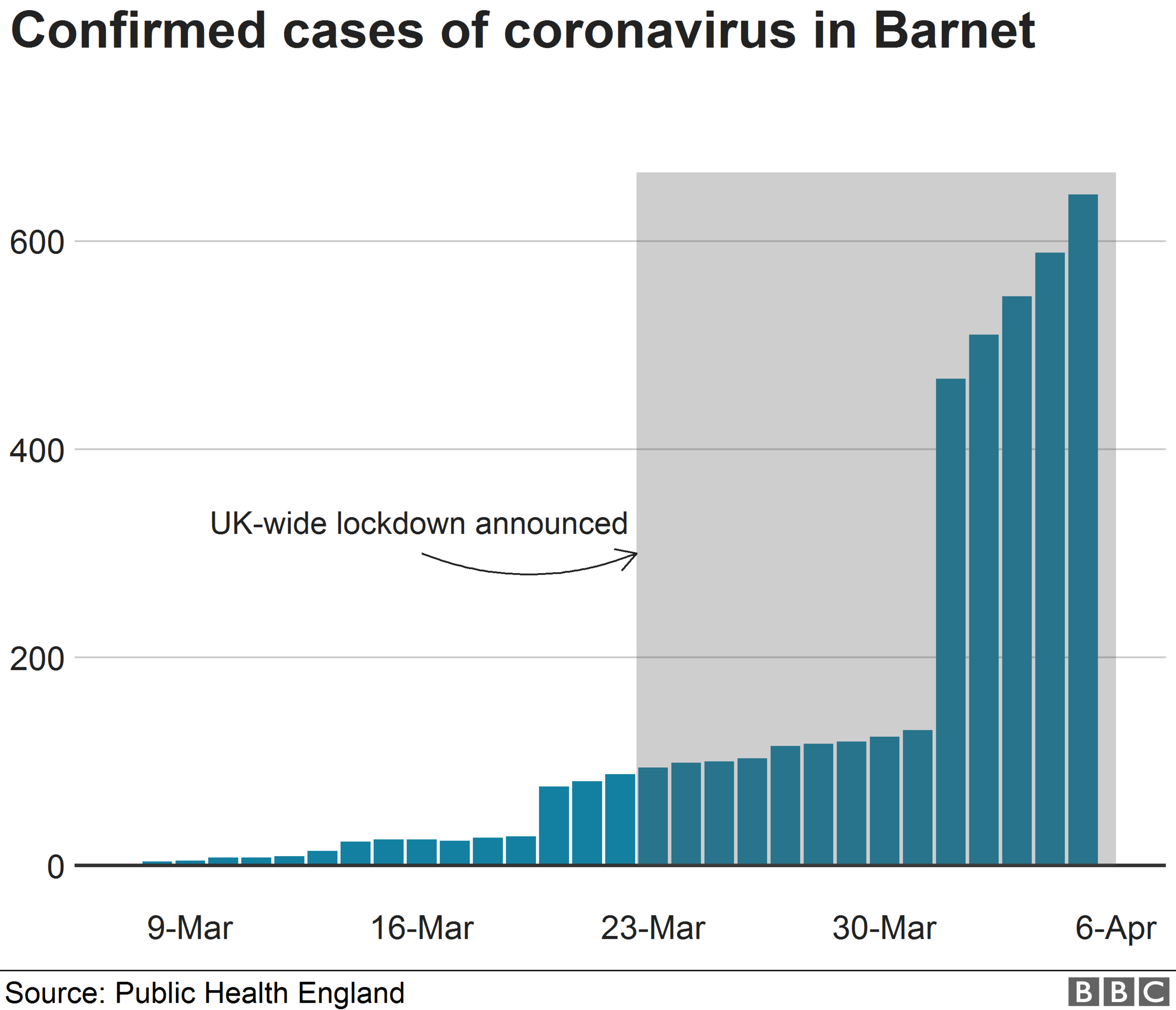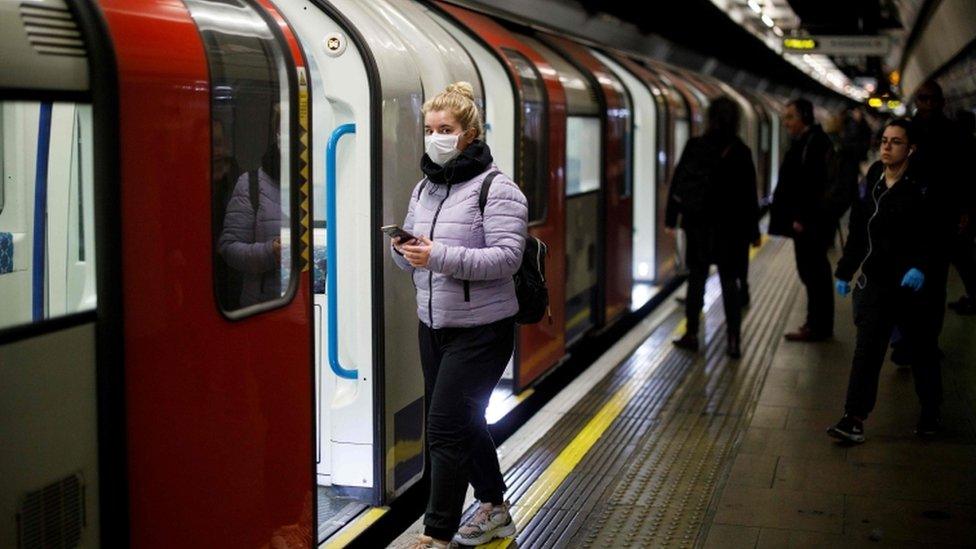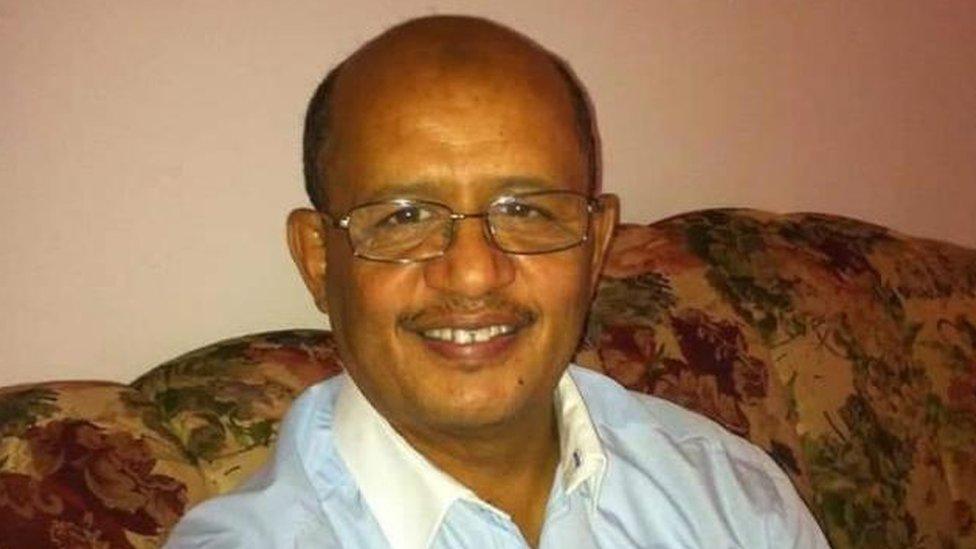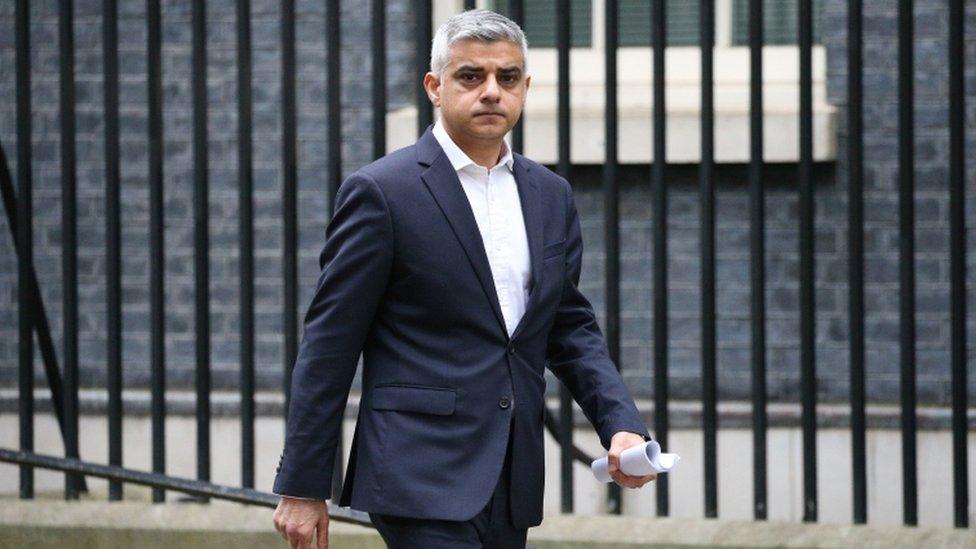Coronavirus: Chief rabbi says Passover in lockdown will be 'challenging'
- Published
Ephraim Mirvis says Passover will be different due to social distancing
The chief rabbi has said celebrating Passover during the UK's coronavirus lockdown measures will be "exceptionally difficult".
Ephraim Mirvis said the "ultimate family-orientated event" would be different due to social distancing.
But it will be a one-off and things "will be back to usual" next year, he added.
His comments come as a rabbi in Barnet said she was amazed at how communities had adapted to lifestyle changes.
Miriam Berger said she hoped stronger community spirit lasts after the pandemic.
Passover is one of the most important dates in the Jewish calendar and has been celebrated by Jews since about 1300 BC.
At the beginning of Passover families and friends will get together for an evening meal and a special service called a Seder.

A SIMPLE GUIDE: What are the symptoms?
AVOIDING CONTACT: Should I self-isolate?
LOOK-UP TOOL: Check cases in your area
MAPS AND CHARTS: Visual guide to the outbreak

But Mr Mirvis said this year's celebration would be "very different and very challenging" as many generations of families who would usually gather around the table were unable to.
Speaking to Emma Barnett on BBC Radio 5 Live he added: "This year we will be in our own homes, separated from other members of families.
"What we do recognise is that this will be a one-off and for next year's Passover it will be back to usual.
"But, I am so impressed and so inspired to the extent that people are helping others, taking them parcels of food and guaranteeing that those who are by themselves should never actually feel alone and to know that they are part of a community and part of a caring society."
There are more than 54,000 Jews living in the borough of Barnet alone, external - making up 20% of the total English and Welsh Jewish population.
Rabbi Berger, of the Finchley Reform Synagogue, said members of the Jewish community had rallied around to make sure nobody was alone ahead of Passover.
"Our community has been incredible," rabbi Berger said.
"Since the bird flu epidemic we have had some services online and found we can interact with people all around the world - so we had a bit of a running start.
"But we have had to adhere so quickly to these changes and we have teams of volunteers split up into three groups to help within the community.
"These are technical, to help the older generation, and also to do shopping for those who cannot.
"We also have a group of volunteers keeping conversations going so people know they are part of a wider community.
"I am hoping when this comes to an end it would be nice to still have these volunteers to help long after the pandemic."
The number of confirmed coronavirus cases in Barnet rose on 1 April from 130 to 468 in the space of 24 hours.
And figures released by Public Health England on Tuesday showed there were now 717 cases in the north London borough - only Brent has more in the capital.

But Dr Tamara Djuretic, Barnet's public health director, said there was no evidence to link the increase to any particular community.
She said: "Barnet is a very diverse borough. We have 16% of Jewish people, which is the largest proportion in the UK, but we also have 14% Muslim community and a very large Asian community.
"We have not received any data to suggest that we see more cases in the Jewish community than any other community in Barnet, but we are certainly closely monitoring that in case it does happen going forward."
Dr Djuretic said Barnet was seeing a "sustained transmission" of Covid-19 within the borough and she urged people to follow the government's advice on social distancing ahead of Passover and Easter.

For more London news follow on Facebook, external, on Twitter, external, on Instagram, external and subscribe to our YouTube, external channel.
- Published24 March 2020

- Published28 March 2020

- Published27 March 2020
